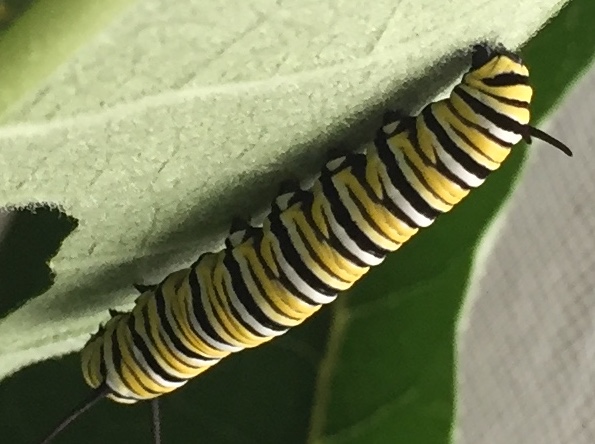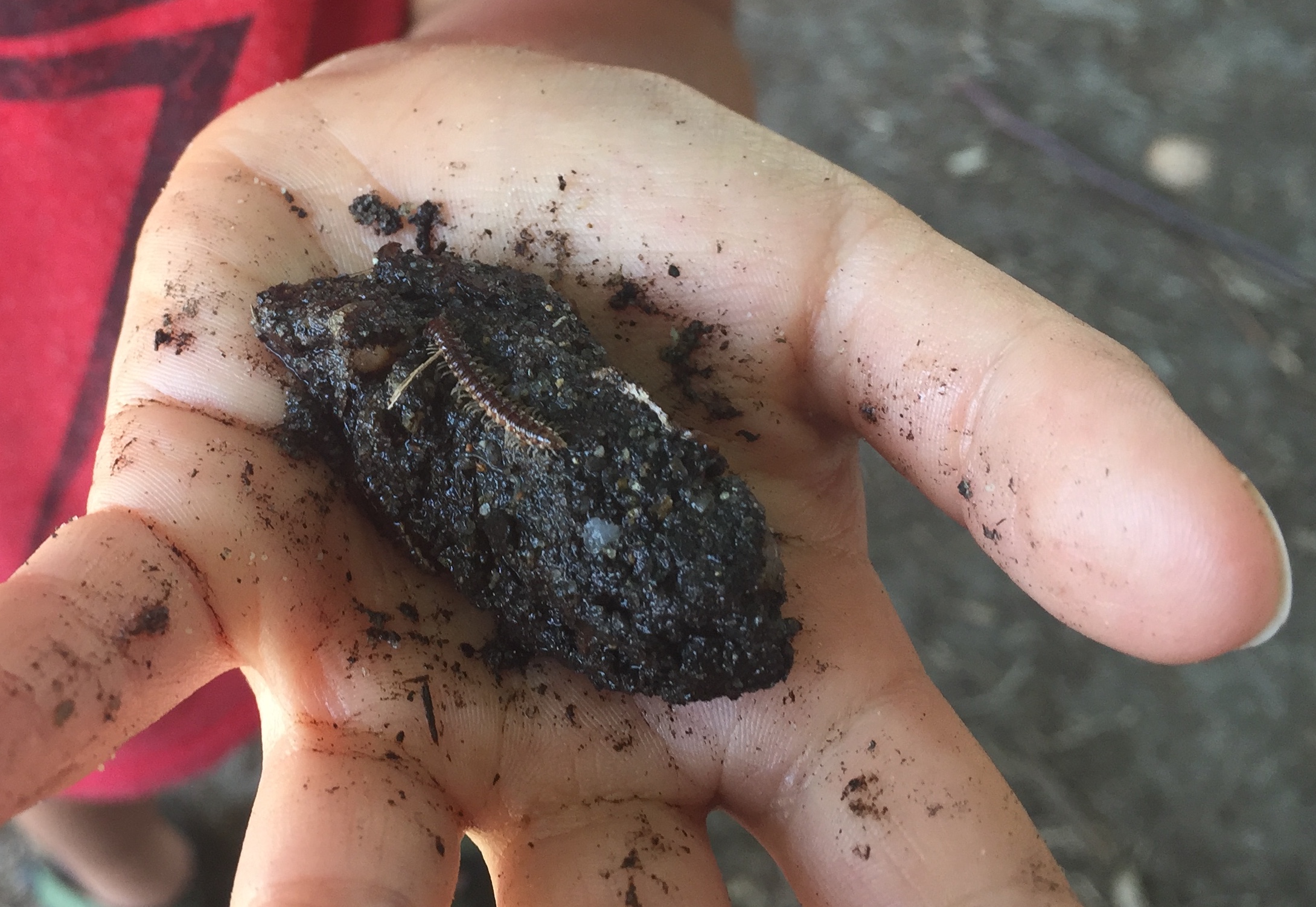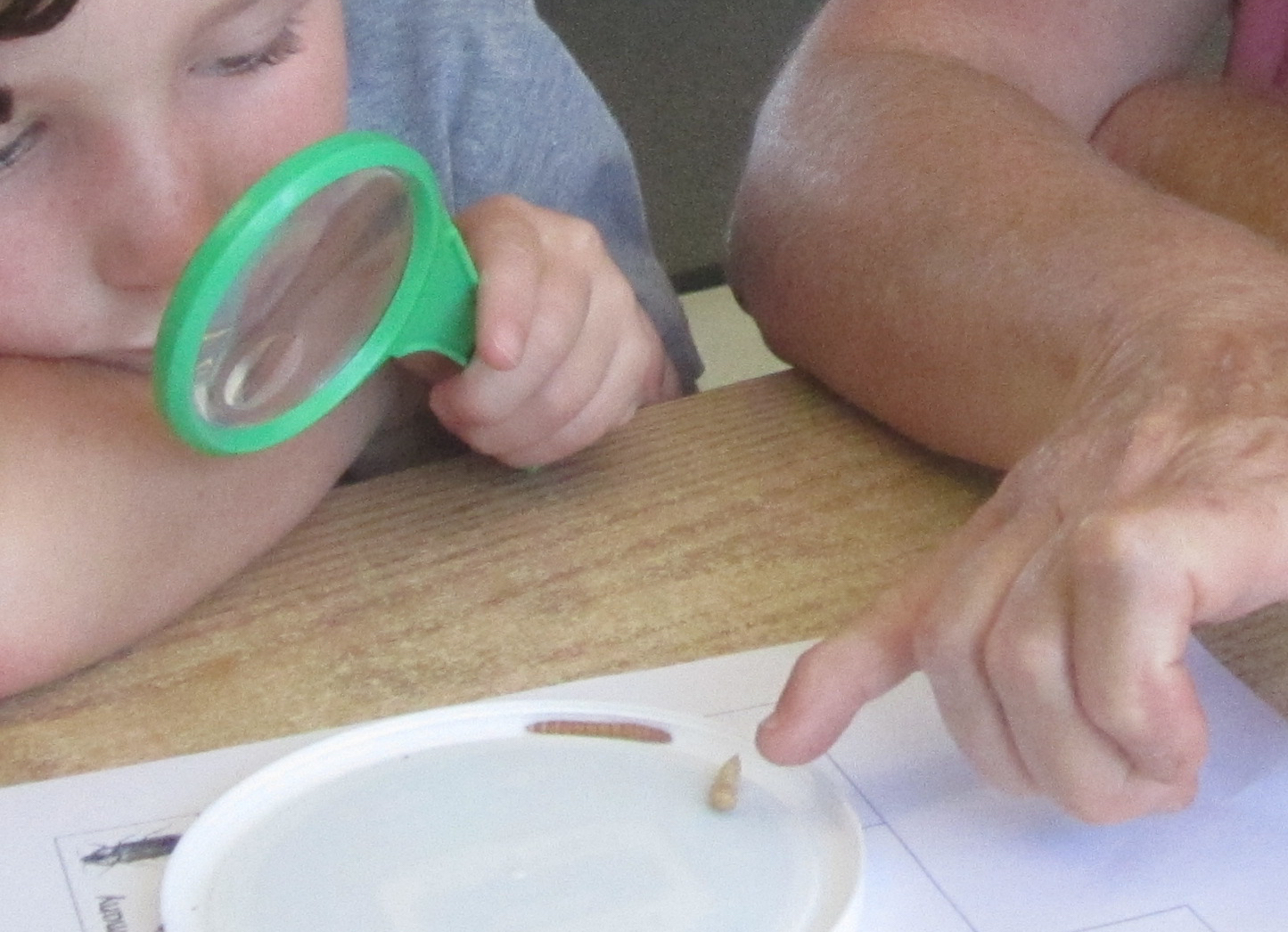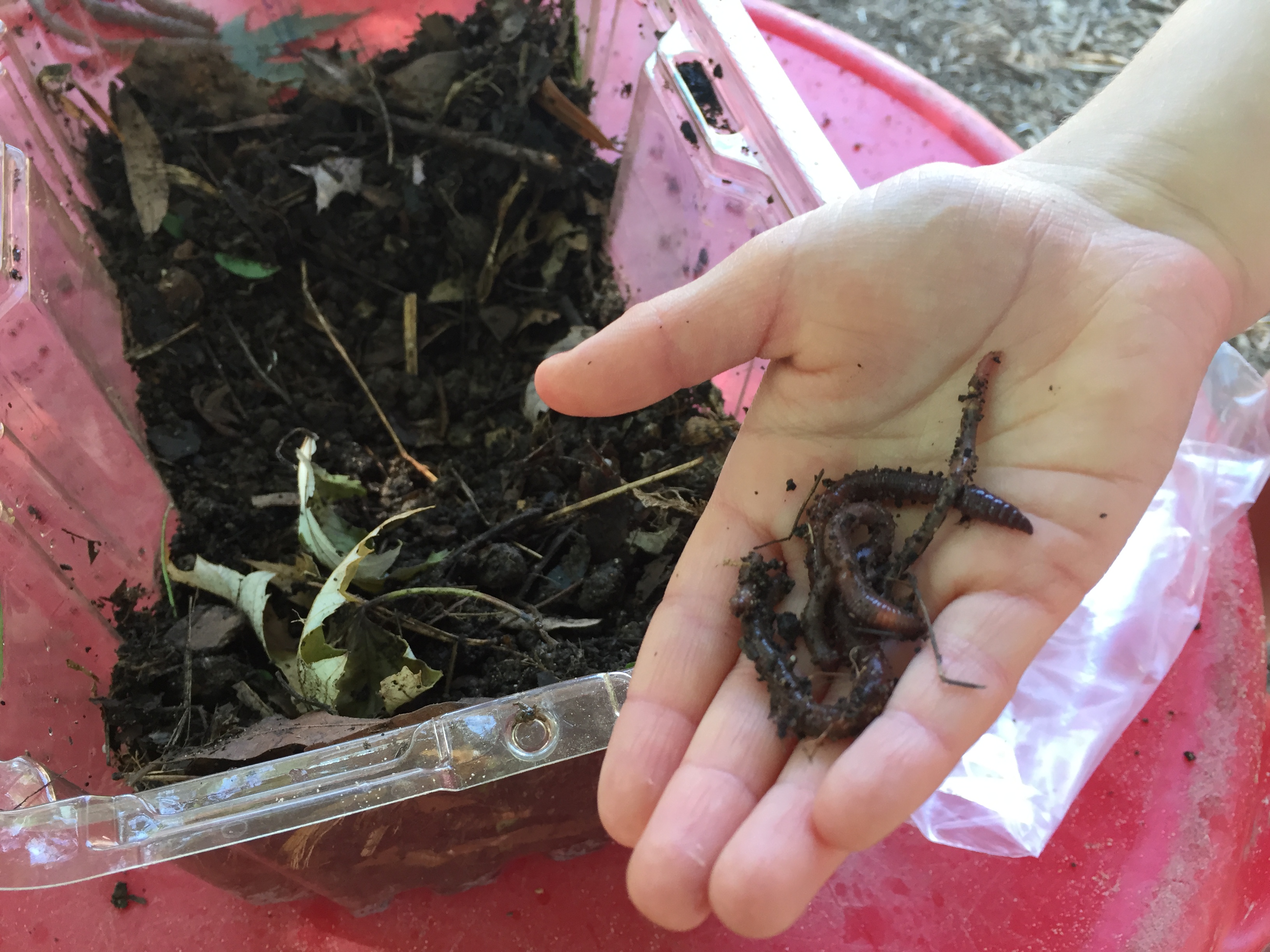Introducing the STEM Teacher Leadership Network
By Korei Martin
Posted on 2019-12-02
By Joni Falk, Co-director of the Center for School Reform at TERC
@STEMTLnet.org
The STEM Teacher Leadership Network (https://STEMTLnet.org), funded by the National Science Foundation (NSF), is inviting teacher leaders, aspiring teacher leaders, as well as researchers and administrators interested in effective school leadership, to join, view, and interact with this new virtual learning community and collegial network.
TERC announced the launch of the STEM Teacher Leadership Network (NSTA is an affiliate organization for the initiative) last week, and the site is already generating huge positive buzz.

“This interactive professional learning community will focus on how teacher leaders can affect change in STEM education,” said Joni Falk, Principal Investigator for the project. “We’ve already heard from many teacher leaders who are excited that this network will enable them to explore new leadership paths and opportunities, connect to leaders across the country, and find relevant resources and upcoming events for their continued professional growth.”
The free membership will provide access to networking tools, resources, and interactive online events throughout the year to explore topics related to STEM teacher leadership. Members will share their leadership paths, challenges, strategies, resources, upcoming opportunities and events with each other.
“NSF is pleased to support a project that is developing an interactive professional learning community for STEM educators,” said Nafeesa Owens, Program Director/Staff Associate within the Education and Human Resources Directorate at NSF. “There are excellent STEM teachers across our country who are leading in and out of the classroom each day. This project not only gives them needed resources, but also promises a network where they can grow and learn on their leadership journey together.”
Each month, the site will explore a theme related to teacher leadership. Each theme will have an online, interactive, expert panel, related resources, a blog, and a month-long facilitated discussion. The first theme, beginning in December, will be “Leading Without Leaving the Classroom,” facilitated by Jay Labov (Retired Director of the National Academies Teacher Advisory Council) and Margo Murphy (high school science educator, recipient of the Presidential Award for Excellence in Mathematics and Science Teaching and an NSTA STEM Ambassador). The panel will include teacher leaders and researchers who will share their experiences and expertise and engage with the community. Be sure to register for the expert panel which will be held online, December 5th, 2019 at 7:30pm EST. You can register to attend at: https://stemed.adobeconnect.com/dectom/event/event_info.html
The STEM Teacher Leadership Network encourages all those interested in teacher leadership to join this network, share resources, and participate in monthly theme events, and ongoing group discussions. The site provides a venue for educators, researchers, principals and administrators to explore how teacher leadership expertise can be leveraged to improve STEM teaching and learning within schools, contribute to new research and development efforts, and influence education policy and its implementation at the district, state, and national level.
STEMTLnet launched as a beta-site in March 2019 and already has over 400 members. The network will grow exponentially with this official launch. Take an active role, join the site, and contribute to the conversation.
Visit https://stemtlnet.org/ to become a member.
TERC is a nonprofit dedicated to improving STEM teaching and learning for all. At the frontier of theory and practice, TERC’s work encompasses research, content and curriculum development, technology innovation, professional development, and program evaluation. TERC has a passion for social justice and strives to create level playing fields for all learners, reaching more than three million students every year. To learn more, please visit www.terc.edu.
By Joni Falk, Co-director of the Center for School Reform at TERC
@STEMTLnet.org
The STEM Teacher Leadership Network (https://STEMTLnet.org), funded by the National Science Foundation (NSF), is inviting teacher leaders, aspiring teacher leaders, as well as researchers and administrators interested in effective school leadership, to join, view, and interact with this new virtual learning community and collegial network.
Creating Engineering Design Challenges: Success Stories From Teachers
Matter and Energy for Growth and Activity, Student Edition
Matter and Energy for Growth and Activity, Teacher Edition
Intentionally providing materials to sort
By Peggy Ashbrook
Posted on 2019-11-26
In addition to providing materials for children, we can ask ourselves, “What is my role as an educator when I provide materials for sorting?” If we were picking through lentils to sort out any wee stones before cooking, our job would be to give children experiences and information to help them identify what is a stone and what is a lentil. If we are sorting laundry to be washed, we would give children experiences and information about color bleeding and absorption to help them understand the reason for sorting. What is the reason for sorting a basket of multicolored and various sized plastic bears? Through sorting activities children are introduced to the idea of attributes, such as size, color, and weight. Non-uniform natural materials with more variation between items provide more challenging sorting experiences. “This rock is biggest.” “And the other rocks are littler.” An educator might ask, “How many different sizes are there?” Or, “Can they be put in a line from biggest to smallest?” Children will have ideas of their own on how the rocks should be sorted.
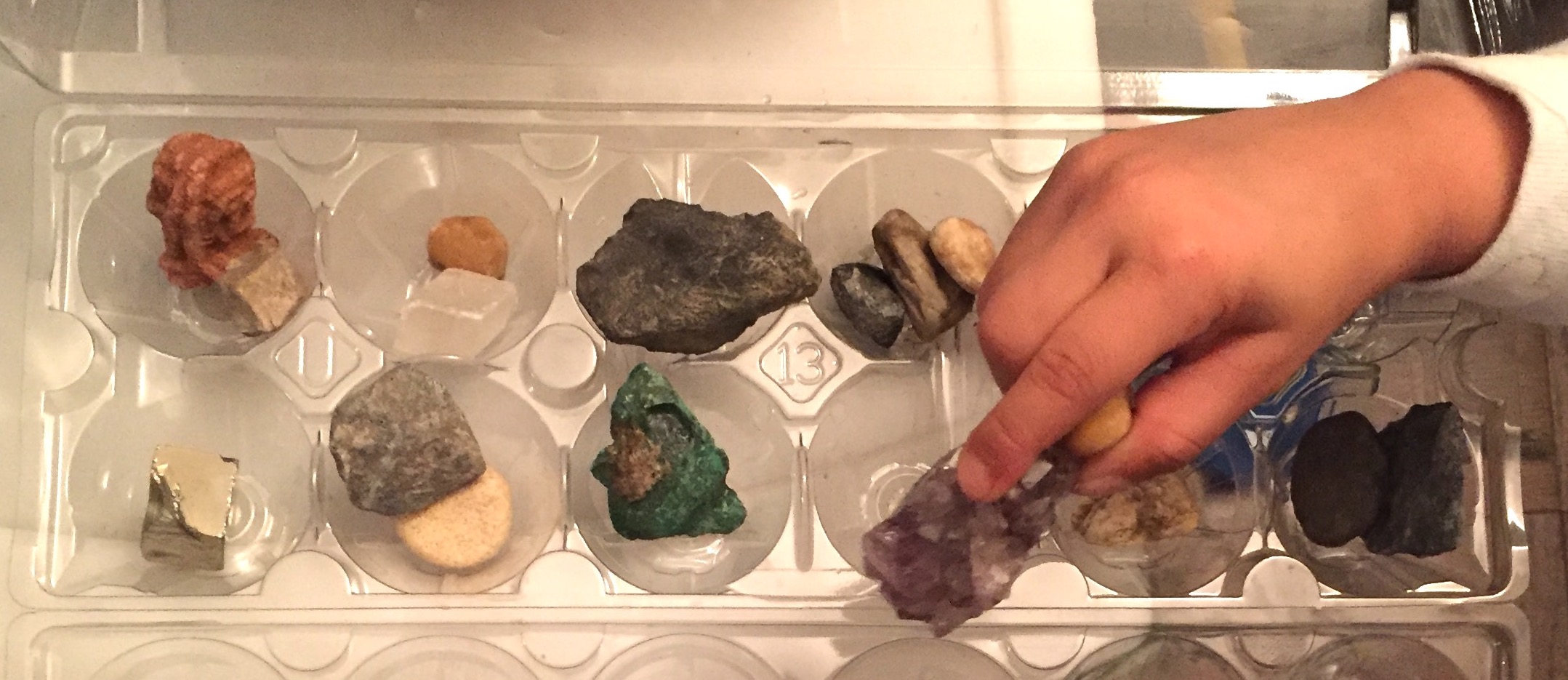
Sorting is one way to use and make sense of data. It is a way to classify living organisms, materials and objects. Through many experiences making observations of earthworms, children learn that earthworms do not have legs. This knowledge helps them classify caterpillars and other larvae (such as beetle larvae often called “mealworms”) as not-worms but something else. They may decide that something else is an insect based on two attributes—the presence of legs, and having six legs. And put millipedes in a separate group based on their “many, many” legs.
One of the Erikson Institute Early Math Collaborative’s Big Ideas is that “attributes can be used to sort collections into sets.” “Young children who understand the Big Idea that attributes can be used to sort collections into sets have a working knowledge of what a set is and how it is constructed.”
In Incorporating Math into Your Cold-Weather Routines, Math at Home blogger Diann Gano describes how she uses sets of cold-weather gear to help preschool children learn routine and patterns and sequence while teaching them to be self-sufficient. See her photos of a two-year-old demonstrating the “firefighter flip” for getting the jacket on with arms in the correct armholes. In another post Gano relates how collected natural materials involved children in arranging the materials, sorting and creating patterns.
“One major use of pattern recognition is in classification, which depends on careful observation of similarities and differences; objects can be classified into groups on the basis of similarities of visible or microscopic features or on the basis of similarities of function” (NRC). Patterns is one of the Next Generation Science Standards (NGSS) Crosscutting Concepts, concepts that bridge disciplinary boundaries, uniting core ideas throughout the fields of science and engineering.
Having an intention for offering materials for children’s use means we have some idea of what children are capable of and what they will learn through using the materials. Children may have other ideas—they usually do! In the Early Years column in the November 2019 issue of Science and Children I wrote about how children’s sorting ideas made me reconsider how the random grouping of model (toy) animals in one tub on the shelf affected how children sorted them, and perhaps led to some misconceptions.
National Research Council (NRC). 2012. A Framework for K-12 Science Education: Practices, Crosscutting Concepts, and Core Ideas. Washington, DC: The National Academies Press.
In addition to providing materials for children, we can ask ourselves, “What is my role as an educator when I provide materials for sorting?” If we were picking through lentils to sort out any wee stones before cooking, our job would be to give children experiences and information to help them identify what is a stone and what is a lentil. If we are sorting laundry to be washed, we would give children experiences and information about color bleeding and absorption to help them understand the reason for sorting.
Volume 1, Issue 12
STEM Mindset
Volume 1, Issue 12
STEM Mindset
Volume 1, Issue 12
STEM Mindset
Star Light, Star Bright
By Gabe Kraljevic
Posted on 2019-11-25
 I was planning a lesson for fifth grade about constellations. If you have any ideas, I would love to hear them.
I was planning a lesson for fifth grade about constellations. If you have any ideas, I would love to hear them.
—B., Illinois
Students often develop the misconception that constellations are two-dimensional. It’s like looking at a road map and never understanding that there is a three-dimensional topography to the land. I would stress that the stars in a constellation are almost all at different distances from Earth. Your students can research their own constellations to make three-dimensional models which, when viewed from the right direction, form the shape we know. The American Museum of Natural History has some related activities http://bit.ly/346dKi0.
Students should make some night observations of stars, the Moon, and planets. There are many online maps to download for each month of the year. Have students learn the prominent constellations and how to use “finder stars.” Have your students construct planispheres—simple paper-and-card stock dial maps that you rotate to the correct time and date for observation. There are many to choose from online such as this one from Sky & Telescope: http://bit.ly/2po0Q0f.
Why not make the lesson cross-curricular? The sky map we follow reflects Greek culture from two and a half millennia ago. The names and stories of the constellations are interesting to students as they ponder why there is a harp (Lyra) and a winged horse (Pegasus) in the sky, and who was Perseus? Give them a star map without lines or names. Ask them to make up their own constellations and stories. I can bet you that they will see cell phones, anime characters and pop stars.
Hope this helps!
Image by Gerd Altmann from Pixabay
 I was planning a lesson for fifth grade about constellations. If you have any ideas, I would love to hear them.
I was planning a lesson for fifth grade about constellations. If you have any ideas, I would love to hear them.
—B., Illinois


